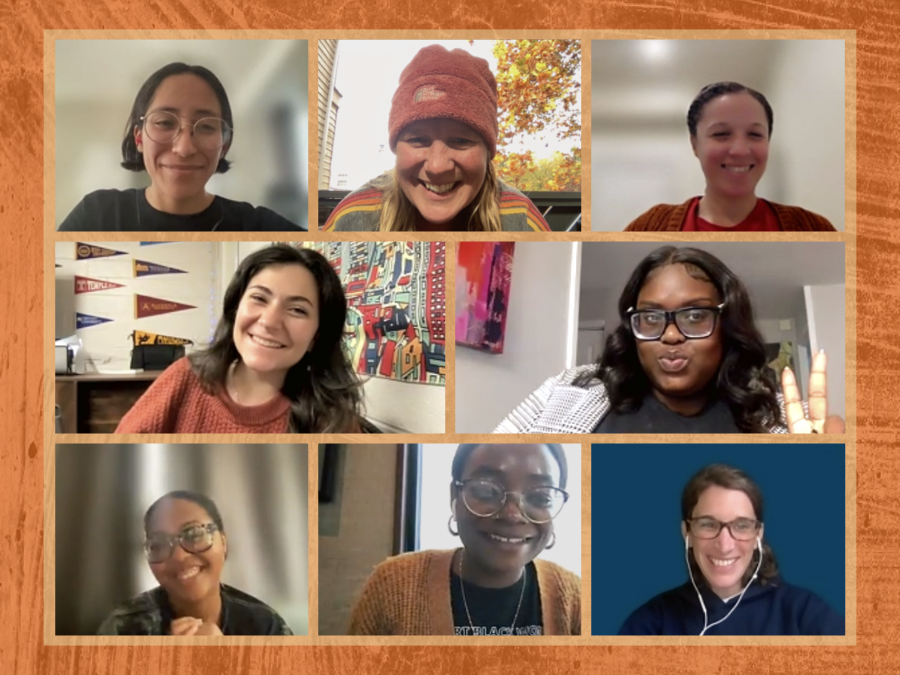
Heights Philadelphia T4BL Study Group
Representing four middle and six high schools in the School District of Philadelphia, a group of 10 educators meet monthly via Zoom to build on their work from the previous year with new staff members at Heights Philadelphia. During one meeting, members watched M.K. Asante Jr. deliver his poem, “Two Sets of Notes” and shared their reactions.
Marissa Robinson, college access advisor, said the line “listen to the elders who spoke” reminded her of herself as a child overhearing her aunties, grandparents, and other family members talk to each other.
Carolina Montes, college access advisor, connected with the lines:
I always take two sets of notes,
One set to ace the test
and
one set I call the Truth
She thought about the school-to-prison pipeline and how students have to “conform to rules that don’t have their best interest at heart.”
Teresa Tham, OST educator, reflected on being of African descent — both her parents are Ghanaian. The only story about Africa she heard in school was about Africans being enslaved and brought to the Americas, but she knew her parents moved here as immigrants. The poem reminded her of the need for code switching — not just for test taking. “You have to assimilate into their culture but when you come back home, it’s a different you.”
The group also read and discussed “How One Elementary School Sparked A Citywide Movement to Make Black Students’ Lives Matter.”
Leah Castellano, college access advisor, highlighted the importance of opening up dialogue around the issues that are impacting students. She asked, “Is school going to be relevant to the issues that our students are discussing every day?” She said, “Giving students a space to talk about problems and become activists when they are young, so they have the guidelines to continue to create change as adults, is really important.”
Tricia Gould, the group coordinator, led a Teaching for Black Lives study group last year that focused on replacing “zero tolerance” policies with restorative practices. She mentioned a lot of improvement in student conflict and reflection among middle school students since adopting more restorative approaches.
Teresa agreed and added: “The community circles are creating an opportunity to give students space to say what they want, speak their mind, and share what they’re feeling. Students know they can speak freely in the community circles.”
Is there a community circle or another place where students can speak freely at your school? Teaching for Black Lives study groups provide resources for educators to start the dialogue and collectively advocate for your students needs.

